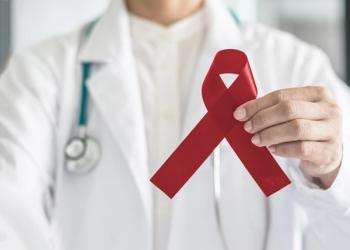
Social Determinants of Health Impacting RRMM Treatment Landscape
Social determinants of health inhibit optimal impact of MM treatment.
Ryan Haumschild, PharmD, MS, MBA: Another thing that complements the quality of life is going to be social determinants of health. I mentioned this earlier, we know that the enhancing oncology model and any institution with a diverse equity, and inclusion strategy is honed in on social determinants of health. We even know that some EMRs [electronic medical records] have a social determinants of health wheel to assess a patient. This is something that we want to have top of mind, not just now, but moving forward. Dr Anderson, as you’re thinking about social determinants of health, that could be financial toxicity, it could be transportation vulnerability or a patient in a food desert, what are those unique considerations that impact their compliance, their adherence, or motivation for therapy? How do you think about that when you’re selecting therapy, or even sequencing certain treatments?
Larry Anderson, MD, PhD, FACP: It doesn’t really matter what I select if the patient can’t receive it or can’t afford it. A lot of those things have to be [considered]. We may come up with plan A and say, “Well, we’ll just have to run it through insurance and figure out what this is going to look like before we make our final decision.” Because sometimes if the copay comes back at $10,000 a month, that’s not going to be a feasible regimen to persist on. It takes a lot of support staff. We have social workers and other people that help us figure out copay assistance programs for these patients so that they can meet their goals and get their drugs for very little copay. So a lot of different organizations have copay assistance. It takes a lot of those things to really get some of these medications covered for myeloma patients, especially if they’re going to be staying on them long-term because the data shows that patients that stay on therapy longer tend to have longer remissions. So it does take a lot of moving parts to figure that out.
Ryan Haumschild, PharmD, MS, MBA: When we think about patient preferences, my question to you Dr Anderson is how often or how much are you able to incorporate patient preferences in your therapies? You’ve definitely hit on some of the differences between orals and IVs, but do you ever have some times where you’re saying the data is overwhelmingly headed in this direction, you share it with the patient and they want to go in another direction? How do you facilitate that conversation ultimately and incorporate that patient preference in your final treatment?
Larry Anderson, MD, PhD, FACP: For example, we know that patients are having incredible outcomes with CD38 antibodies, and we’re often using them frontline. And let’s say a patient’s relapsed once or twice, and they still haven’t had 1, it’s very common for us to say, “You really need this CD38 antibody,” but they’re like, “I’m playing golf, or I live 2 hours away, or I don’t like needles, I don’t want a shot.” Then we’re going to at least give them the option of looking at oral therapy alternatives. Although certainly if we have a patient, for example, that’s really dead set on an oral therapy, but they have no prescription coverage, then it’s going to be very difficult to really be able to prescribe that and have them stick to that because they’re not going to be able to afford it. So then often their insurance will cover those injections or infusions and so that would be more realistic for them.
Ryan Haumschild, PharmD, MS, MBA: It’s great to hear all the thought that goes into the regimen. I know you’re very thoughtful but you’re right, there are so many different situations that can come up, not even just within the clinical disease landscape, but also within the affordability perspective.
Transcript edited for clarity.
Newsletter
Stay informed on drug updates, treatment guidelines, and pharmacy practice trends—subscribe to Pharmacy Times for weekly clinical insights.




























